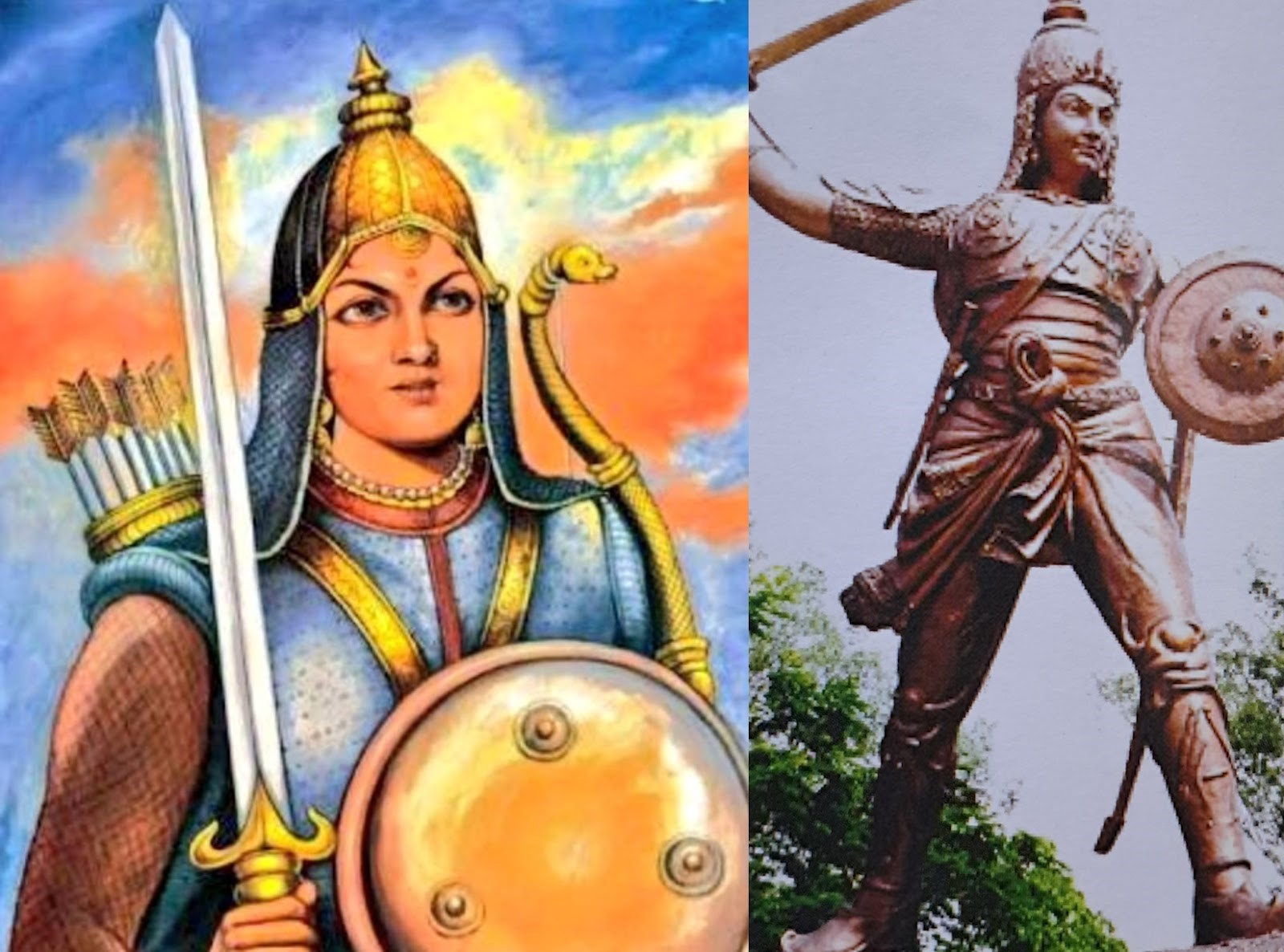Rani Durgavati | 28 Jun 2023
Why in News?
Recently, the Madhya Pradesh government launched a six-day rally called the Rani Durgavati Gaurav Yatra to commemorate the life and legacy of the 16th-century queen, Rani Durgavati, who fought against the Mughals.
Who was Rani Durgavati?
- About:
- Rani Durgavati, born in 1524 in Mahoba's Chandela dynasty (present-day Uttar Pradesh, near the border with Madhya Pradesh), was a symbol of India's self-determination.
- Chandelas were known for building the famous Khajuraho temples in the 11th century.
- She married Dalpat Shah, the son of Gond King Sangram Shah, and ruled the kingdom of Garha-Katanga after the death of her husband in 1550 with great vigor and courage.
- The Kingdom of Garha-Katanga included the regions of Narmada Valley and parts of Northern Madhya Pradesh.
- Gond tribe is a prominent tribe in central India known for their rich cultural heritage and resilience.
- As per the government’s documentation, the queen and her generals managed the affairs of the kingdom for 16 years.
- Rani Durgavati, born in 1524 in Mahoba's Chandela dynasty (present-day Uttar Pradesh, near the border with Madhya Pradesh), was a symbol of India's self-determination.
- The Mughal Attack on Garha-Katanga:
- Rani Durgavati, the brave queen of Garha-Katanga, opposed the Mughal Empire's expansion in the mid-16th century.
- Rani Durgavati displayed strong leadership while fighting against Akbar's commander Asaf Khan and the neighboring Malwa Sultan Baz Bahadur. She initially triumphed in the battle against Asaf Khan's attack on her kingdom.
- However, the Mughals regrouped and overwhelmed her forces. Rather than surrendering, Rani Durgavati chose to sacrifice her life.
- Legacy and Recognition:
- Revered as a patriotic ruler who symbolized India's self-determination.
- Described as a combination of beauty, grace, courage, and bravery by Abul Fazl, the court historian of Akbar.
- Remembered for her sacrifices and as a defender of her culture.

